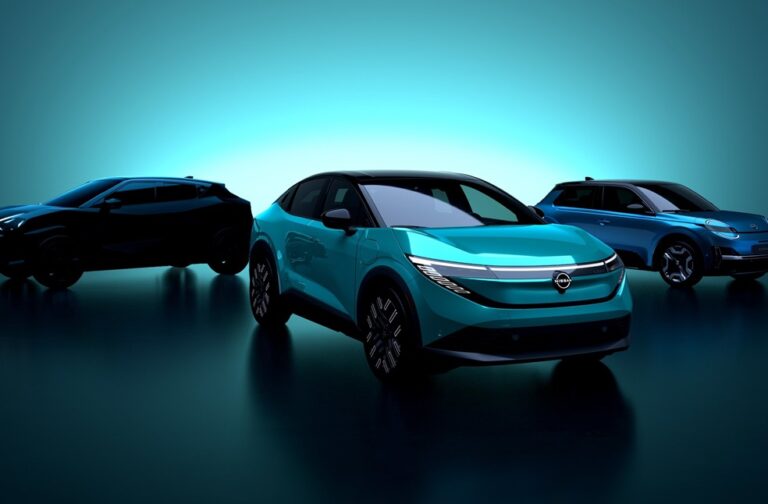Nissan is cutting back its production targets for the upcoming LEAF EV ahead of its planned launch later this year. The decision comes amid the company’s broader efforts to stabilize operations and navigate ongoing restructuring. While intended as a strategic adjustment, the move may pose additional challenges to its recovery plan.
The upcoming LEAF model is projected to play a key role in Nissan’s recovery strategy. As part of its sweeping restructuring efforts declared in May, the company revealed plans to cut its global workforce by approximately 15% and shut down seven production facilities. Most recently, the company has initiated discussions on voluntary retirement with employees at its Sunderland plant in the UK, where production of the new LEAF is slated to begin.
According to Japan’s Kyodo News, citing Reuters, the production adjustment is attributed to a rare earth mineral shortage triggered by China’s export restrictions.
While exact details remain unclear, a separate report from Automotive News indicates that Nissan is also postponing the production of two electric vehicles initially scheduled for manufacturing at its Canton facility in Mississippi.

An internal memo has revealed a roughly 10-month delay in production, with Nissan linking the shift to declining U.S. demand for electric vehicles and the Trump Administration’s elimination of the federal EV tax credit. As a result, production of the Nissan-branded electric model is now set to begin in November 2028, while the Infiniti-branded version is projected to launch in March 2029.
Nissan spokesperson Kyle Bazemore stated that the company has made a strategic decision to revise the EV production timeline at its Canton facility. While described as a minor revision, the move reflects a broader restructuring effort. As part of its ‘Re:Nissan’ recovery initiative, the automaker is targeting cost reductions of 250 billion yen, with the goal of returning to profitability by the end of fiscal year 2026.
DON’T MISS | Hyundai Mobis Ranks 6th Globally, Targets $7.4B Orders in 2025





